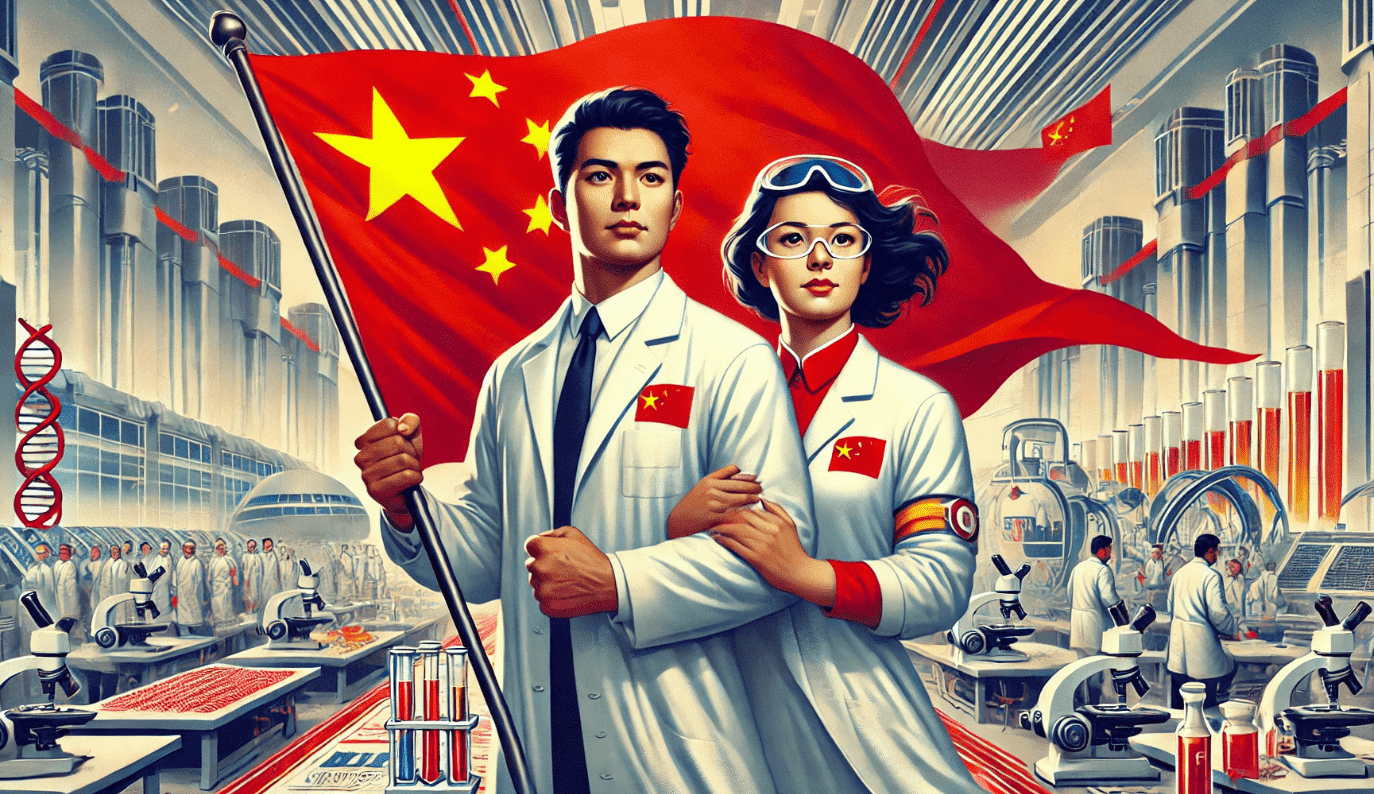Insider Brief
- China’s leader, Xi Jinping, acknowledged significant challenges in the country’s quest to move from a research leader to a global tech powerhouse.
- Xi admitted that China’s innovation capabilities are “relatively weak” despite the country’s overall strength in science and technology.
- The remarks were made in a speech at a recent national conference in Beijing.
A recent deep dive into research output published in The Economist shows the China has become a global research powerhouse, including vast leaps in scientific investigations into quantum computing and artificial intelligence (AI). Converting that scientific knowledge into business innovation is where the country stumbles — and Chinese leadership recently passed out national failing grades in that subject.
China’s leader, Xi Jinping, acknowledged significant challenges in the country’s quest to move from being a research leader to a global tech powerhouse, reports the Business Insider. Speaking at a national conference in Beijing, Xi admitted that China’s innovation capabilities are “relatively weak” despite the country’s overall strength in science and technology.
Xi’s remarks highlighted the urgent need for advancing in technology, which he termed the “main battlefield of international competition.”

He candidly noted that, although China has made considerable progress in science and technology, its original innovation remains lacking.
“Although the country’s science and technology development has made great progress, its original innovation capabilities are still relatively weak,” Xi said, as reported by the Business Insider.
During his speech, Xi emphasized the importance of innovation 55 times, BI notes, particularly in areas such as AI, quantum technology, biotechnology and new energy. Despite recognizing the country’s achievements, Xi also stressed that technological breakthroughs are too scattered across various sectors and companies, leading to a “low degree of organization and coordination.”
He also mentioned that the nation’s scientists were “overburdened,” likely a reference to the non-research duties of scientists.
Measuring Innovation
Innovation is a factor that is difficult to measure scientifically, but a preliminary look at The Quantum Insider’s Intelligence Platform shows that, at least according to some innovation indicators of the quantum industry, Xi may be onto something. Chinese universities and research institutions lead, or are among the global leaders, in research output — as measured by the number of scientific papers that are published — across the quantum technological landscape, such as quantum computing, quantum sensing and quantum communication.
However, there is scant evidence of significant quantum partnerships within China or internationally, compared to what is becoming a global approach to quantum innovation that relies on building interdisciplinary ecosystems with members who are spread across academia, government and business. For example, a cursory examination of a sample of research papers on the platform show that while academic-commercial and cross-institutional authorship is somewhat common among the quantum research output of non-Chinese nations, China’s research papers tend to be authored by scientists from a single institution without partners in commercial organizations or, often, other academic institutions.
Similarly, while global efforts are focused on developing quantum use cases — practical applications of quantum computing and quantum technologies in solving complex problems — there are few examples of this work going on in China. Of course, these results could be attributed to a range of other causes, including a lack of publicity and communication, rather than a lack of effort in China.
Perhaps more symbolically, both Alibaba and Baidu, once banners for China’s quantum innovation and market reform entrepreneurism, shut down their quantum programs and donated the equipment to university efforts.
Self-Reliance
A key theme of Xi’s address was self-reliance, BI reports, especially in light of escalating tensions with Western nations.
“The scientific and technological revolution and the wrestling between superpowers are intertwined,” Xi said, without directly naming the United States. He pointed out that China needs to address the issue of “some key core technologies” being controlled by other countries.
Xi’s comments come as the United States considers expanding sanctions on Chinese chip firms linked to Huawei and continues to block the sale of advanced semiconductors crucial for artificial intelligence development, BI reports. Recently, the U.S. Treasury Department labeled China a “country of concern” and proposed new regulations to limit international investments in technologies with potential national security risks. The United States — joined with many other western nations — also announced restricting technology exports to many Chinese emerging tech firms, including China’s biggest quantum computer companies and their subsidiaries.
In addition to these geopolitical challenges, Xi called out domestic issues within China’s tech and science sectors. Just as other country’s face struggles finding the right talent for an increasingly more technical workforce, Xi acknowledged a shortage of skilled manpower and top talent, alongside heavy nonacademic burdens faced by researchers, such as excessive bureaucracy in publishing papers and securing resources.
Xi called for improved incentive systems, including better awards for scientific achievements and a more equitable wage system for employees and researchers.
Some experts see that solving the academic-entrepreneurial disconnect in China will require more than a few incentives and policy tweaks, but are systemic results of Xi’s own economic reforms.
Martin Miszerak, a visiting lecturer at Renmin Business School, Renmin University, Beijing, wrote last September that the government has essentially squashed the entrepreneurial business model in China, according to his piece the East Asia Forum, which publishes analysis and research on economic, political, social and international issues in the Asia-Pacific region. Miszerak writes: “Before November 2020, those companies were very different from most of China’s large private companies. Their business model at that time could be described as ‘entrepreneurial’ — completely private, backed by world-class venture capital and guided by entrepreneurial leaders dedicated to shareholder value maximisation. This entrepreneurial business model has now been extinguished. Instead, these firms must align with other large private Chinese companies which tend to be intertwined with the state. This ensures significant state influence over the private sector.”
While the United States enjoys a tech boom driven by giants like OpenAI, Nvidia, Amazon and Microsoft, China’s tech sector faces mounting pressure. According to Business Insider, China’s top five tech companies have lost approximately $1.3 trillion in market value since 2021, leading to increased demands on workers from industry bosses.
The Chinese government’s focus on artificial intelligence development has been particularly intense. Business Insider previously reported that a Microsoft study indicated China-linked social media accounts intended to use AI-generated content to influence U.S. elections.
Xi’s speech underscores his ambition for China not just to participate but to dominate the global tech landscape.
“We must bolster our sense of urgency. We must go further with our efforts to innovate,” Xi said. “To occupy the commanding heights of science and tech competition and future development.”















